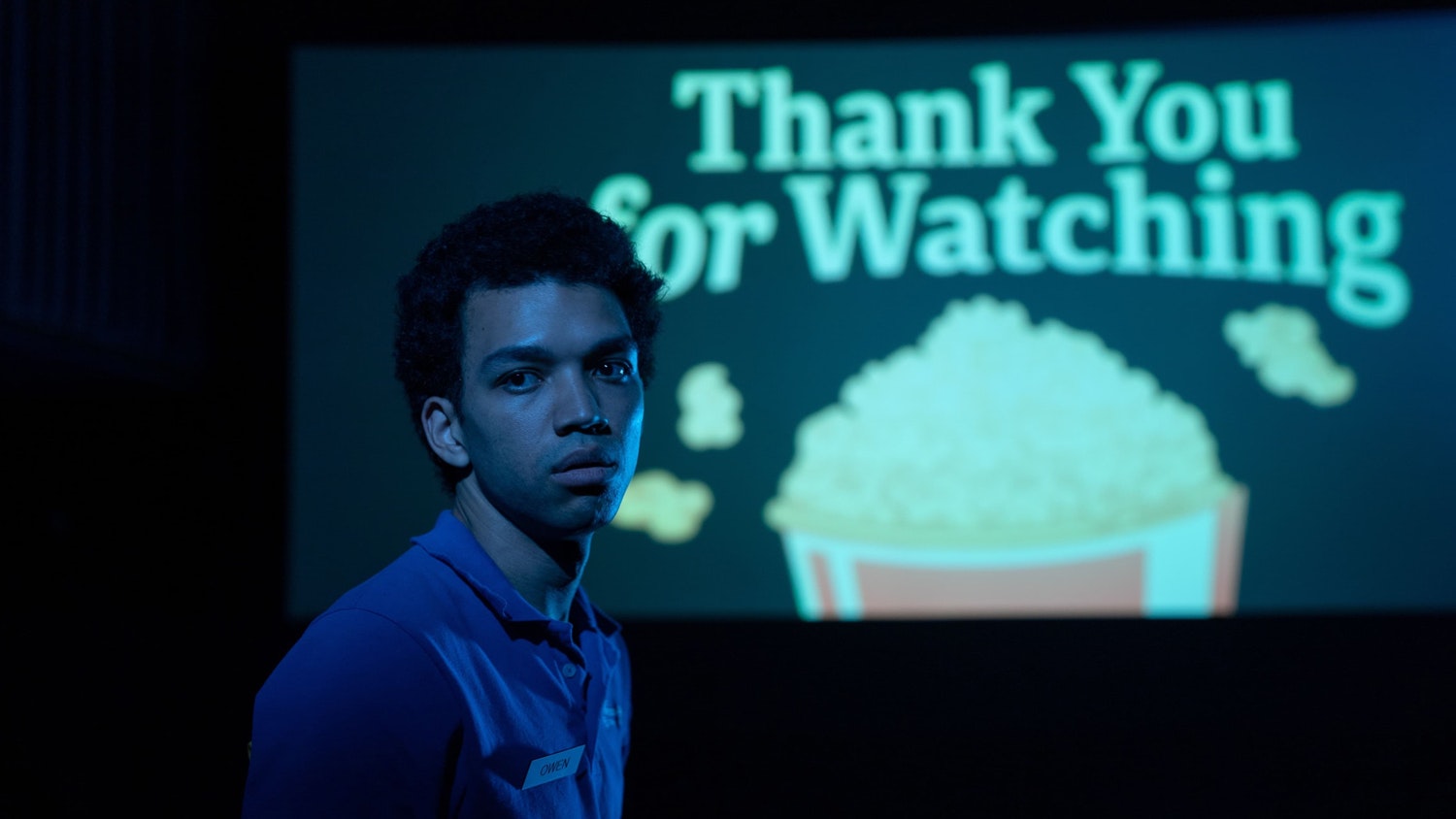I Saw The TV Glow
The stories we encounter when we’re young can sometimes speak to us so deeply...

The stories we encounter when we’re young can sometimes speak to us so deeply that they envelop us. These stories can be something we don’t just experience, but become. Or, perhaps, they lead us to become ourselves if we’re brave enough to let them. In this awe-inspiringly original film, writer and director Jane Schoenbrun captures the intimacy of this experience while telling their own semi-autobiographical queer story like no-one else could.

It’s the late 1990s, Bill Clinton’s America. Lonely 12-year-old Owen (Ian Foreman) gravitates towards fellow outcast Maddy (Brigette Lundy-Paine). They’re both irrevocably drawn to ‘The Pink Opaque’, a TV show about two teenage girls with a telepathic connection who fight the forces of evil every week. With its magenta glow, the screen acts as a window to a world that feels more real than their own, a place to retreat to from their oppressive home lives. The film is shot on stunning 35mm but punctuated by the achingly familiar static buzz of a VHS tape.
Two years go by, and Owen (now played by Justice Smith) is facing the loss of his beloved mother (Danielle Deadwyler) from a terminal illness. His father (Limp Bizkit’s Fred Durst), a malevolent figure who lurks in the shadows of their living room, sneers at his interest in ‘The Pink Opaque’: “Isn’t that a show for girls?” Meanwhile, Maddy yearns to escape from her stepfather’s violent abuse, of which we only hear haunting snatches. She embraces the rebellion that ‘The Pink Opaque’ sparks in her, while Owen represses what it has exposed within himself.
Like David Lynch, Jane Schoenbrun is compelled by the rot behind the façade of the American dream.
The boundary between television and reality starts to collapse, but in this film the ‘real’ world is more unsettling than the fiction they retreat to. Schoenbrun creates an uncanny vision of a suffocating suburb at twilight, illuminated by screens and strip lighting, reminiscent of David Lynch. Owen and Maddy even attend Void High School (VHS, of course), and later visit a dive bar that’s straight out of Twin Peaks. Like Lynch, Schoenbrun is compelled by the rot behind the façade of the American dream.
This isn’t a film interested in coming-out narratives, nor any kind of conventional narrative. Instead, it’s a profoundly affecting queer allegory. Ostracised at school, Maddy comes out as a lesbian to Owen, while Owen’s identity begins to bleed into ‘The Pink Opaque’’s Buffy-esque protagonist, Isabel (Helena Howard). When Maddy asks Owen if he likes boys or girls, Owen simply and honestly replies: “I think I like TV shows.”
Owen is haunted by Mr Melancholy (Emma Portner), the show’s hollow-eyed Big Bad and an overt symbol of depression. He’s a ghastly apparition that looks like the famous lunar face from the silent film A Trip To The Moon, but as if captured on a degraded VHS tape. In a truly disturbing sequence, Mr Melancholy seems to look deep into Owen’s heart and warns that if he doesn’t accept his true self, he’ll lose all sense of who he is. But Owen’s emerging transgender identity recasts the fracturing of his reality not as frightening but as a life-saving distress call, and his repression is akin to self-annihilation.
As complex and strange as this all sounds, the film is anchored by astonishing performances. Brigette Lundy-Paine brings an authentic adolescent rage to Maddy, a thin veil over her vulnerability, while Justice Smith is simply a revelation. He’s silent throughout much of the film, and when we do hear his voice it’s a wavering croak, as if he’s forever imprisoned in puberty, even though the film spans decades of his life. Somehow he manages to be both intensely human and have an otherworldly presence, and in I Saw The TV Glow’s searing climax he’s unforgettable, releasing unbearable inner turmoil and cutting through the weirdness to reach something truthful.
Towards the end of the film, Schoenbrun lingers on the words “There is still time”, chalked on Tarmac like a sign from a deity. It’s a glimmer of hope in an uncaring world, a cry of queer resistance against those that would silence you, an outstretched hand beckoning you through the screen.
What's Your Reaction?























